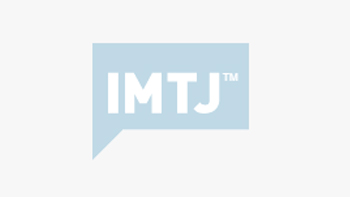The National Conference in Abuja discussed Nigeria’s future and how oil money can be used in a fairer way. In a bid to reduce the current negative impact of medical tourism on Nigeria and its healthcare system, it suggested strict procedures that must be observed by public officers seeking medical treatment outside Nigeria. The 500 politicians at Conference argued that seeking medical treatment abroad has resulted in unaffordable capital flight and a drain on Nigeria’s economy.
The National Conference in Abuja discussed Nigeria’s future and how oil money can be used in a fairer way. In a bid to reduce the current negative impact of medical tourism on Nigeria and its healthcare system, it suggested strict procedures that must be observed by public officers seeking medical treatment outside Nigeria.
The 500 politicians at Conference argued that seeking medical treatment abroad has resulted in unaffordable capital flight and a drain on Nigeria’s economy. More specifically it cited evidence that regular abuse of existing processes for screening of referrals for foreign medical treatment as one of the reasons.
The recommendation is that there should be restriction of government sponsorship of public officers for foreign medical care; and that unless for exceptional cases that require referral abroad, all public officers must use local clinics and hospitals. A medical board made up of medical and healthcare professionals must screen these exceptional cases. In addition, the recommendations of the board should be subject to the approval of the Minister of Health, who is the chief medical adviser to the Federal Government, except where such exceptional cases are serious emergencies, in which instant approval may be given.
The Conference admitted that there is an urgent need for improvement in the quality of healthcare services in the country.
Despite its vast resources, Nigeria ranks among the most unequal countries in the world. The poverty in the North is in stark contrast to the more developed Southern states. Even in the oil-rich South-East, the residents of Delta and Akwa Ibom complain that all the wealth generated flows up the pipeline to Abuja and Lagos. The oil is located in Southern Nigeria and delegates from oil-producing areas want local communities to keep more of the revenue it generates. However, poverty levels are far higher in the North and delegates from non-oil-producing resist such moves. Oil states keep 25% of the oil revenue they earn and hand the rest to the federal government. Nigeria is one of the world’s biggest oil producers but most of its 170 million people live in poverty. Some Nigerians want more powers to be delegated to the country’s 36 states.
Agreed at the Conference was that free healthcare be established for children aged 0-5; senior citizens from the age of 65; people living with disability; plus free maternal services and free school health programmes.
Nigeria loses huge sums in capital flight to medical tourism, as most of the nation’s hospitals lack the modern equipment needed for effective diagnosis and treatment. N80 billion annually on medical treatments abroad goes to India, Germany, UK, Israel and the Middle East.
While efforts are being made to transform healthcare in Nigeria by equipping the hospitals with modern equipment, the investment needed to do this and build many new hospitals is huge. President Goodluck Jonathan recently expressed his determination to involve local and international private investors in the health sector reforms, “A lot of Nigerians go to seek medical help abroad and almost all the hospitals that attend to them outside this country are privately owned. If we encourage the private sector to take the lead; that would save the amount of money Nigerians pay outside. The determination of our government is to ensure that our citizens have access to quality and affordable healthcare services. The role of the private sector in complementing government efforts is crucial.”
Dr Osahon Enabulele of the Nigerian Medical Association (NMA) wants the speedy passage of the National Health Bill by the National Assembly to curb medical tourism. “On medical tourism, one way to tackle it is to support the National Health Bill. The bill has a provision for the constitution of a body of medical experts, which would assess the requests of those, especially top political office holders, who want to go abroad in the name of attending to some health conditions. The National Health Bill could mean medical tourism will be wiped away sooner than later.’’








 ©2024 All rights reserved LaingBuisson
©2024 All rights reserved LaingBuisson 


